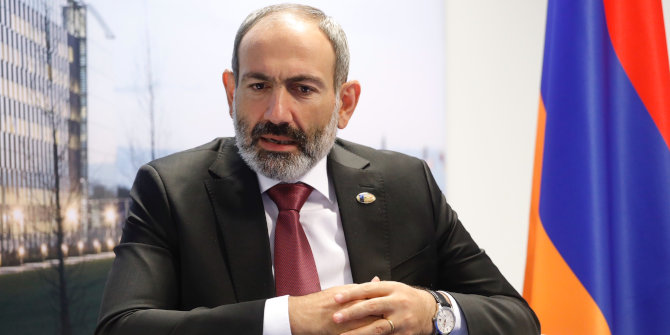The Italian government has published a new framework for building a more equitable relationship with countries in Africa. Umberto Marengo argues that this plan – known as the “Mattei Plan” – lacks the vision and strategy required to make a real impact.
In 2022, Italian Prime Minister Giorgia Meloni announced a grand plan to forge a new and more equitable relationship with Africa. The plan was named after Enrico Mattei, the charismatic founder of Italy’s national oil and gas company in the 1950s (ENI), who championed decolonisation and challenged the oligopoly of post-colonial oil companies in Africa and the Middle East.
Today, the “Mattei Plan” is still little more than a label. We know it should revolve around two pillars: making Italy a European hub for energy imports through the Mediterranean and supporting sustainable development in Africa, with the goal of reducing the influx of migrants. However, to date, the plan is little more than a framework to coordinate various initiatives under the Italian Cabinet Office.
Instead, it should be an opportunity to finally rethink what Italy’s role on the world stage should be beyond the small circle of its western allies. Italy lacks a development cooperation policy befitting a G7 country. The Italian budget for development cooperation is only six billion euros per year and a significant portion of it is spent in Italy on refugees. France and the United Kingdom each spend fifteen billion euros annually. The French development cooperation agency alone disburses over ten billion euros in concessional loans and non-repayable grants to governments each year.
Equitable partnerships
Championing development means, first and foremost, building equitable partnerships guided by the principle of mutual respect. This was Mattei’s philosophy, and the government claims to embrace it. However, the government’s plan begs the question of what Italy’s real value proposition is to help make the world a better place to live in. What distinctive contribution can Italy bring to the international community? Mattei’s answer in the 1950s and 1960s was simple and powerful: help fossil fuel-exporting countries to develop, with ENI support, a domestically-owned refining industry and emancipate themselves from the former European colonial powers.
Today’s Italy does not have an answer to this question, partly because the answer is much more complex now. The recent UK White Paper on International Development provides a valuable source of inspiration. Development today means, for example, mastering financial engineering to mobilise private capital. The resources needed for climate transition and poverty reduction – trillions of dollars per year – far exceed the resources available from governments and development banks. In our economic model, capital is in private hands, so financial instruments are needed to mobilise these funds towards higher-risk countries.
But it’s not just about finance. Developing countries seek technological solutions for sustainable industrial development, reliable energy access and emission reduction through electrification and climate change adaptation. In addition to resources, managerial and engineering capabilities are needed for the design of new bankable infrastructure.
Another example is the exponential growth of the telecommunications sector in Africa, where there is still very limited market competition. Finally, much has changed since Mattei’s time: today, we know that no humanitarian or industrial programme works without placing front and centre the people who live in developing countries, not just those who govern them.
Answers for our time
The formula for development cooperation has remained essentially the same since Mattei’s time: finding common ground between the needs of developing countries, leveraging Italy’s expertise and navigating the volatility of the political agenda of the day. For Mattei, the mediation point was ENI: a state-owned company with a public ethos. Today, this mediation point needs to be rebuilt.
Doing so requires skills, tools and experience that Italy, compared to other G7 countries, has neglected. Just think of the absence until a few years ago of a development agency or a development finance institution. In Italy, development institutions do not operate at arm’s length from the government, unlike in many other European countries. Decision-making is therefore more political, volatile and complex.
The Mattei Plan should help Italy understand what its unique contribution could be to the world’s most pressing development challenges. This should be the mission of the new dedicated team Meloni set up within her Cabinet Office. Sixty years after Mattei’s death, we have a duty to give ourselves an answer worthy of our time, not his.
Note: This article gives the views of the author, not the position of EUROPP – European Politics and Policy or the London School of Economics. Featured image credit: European Union



